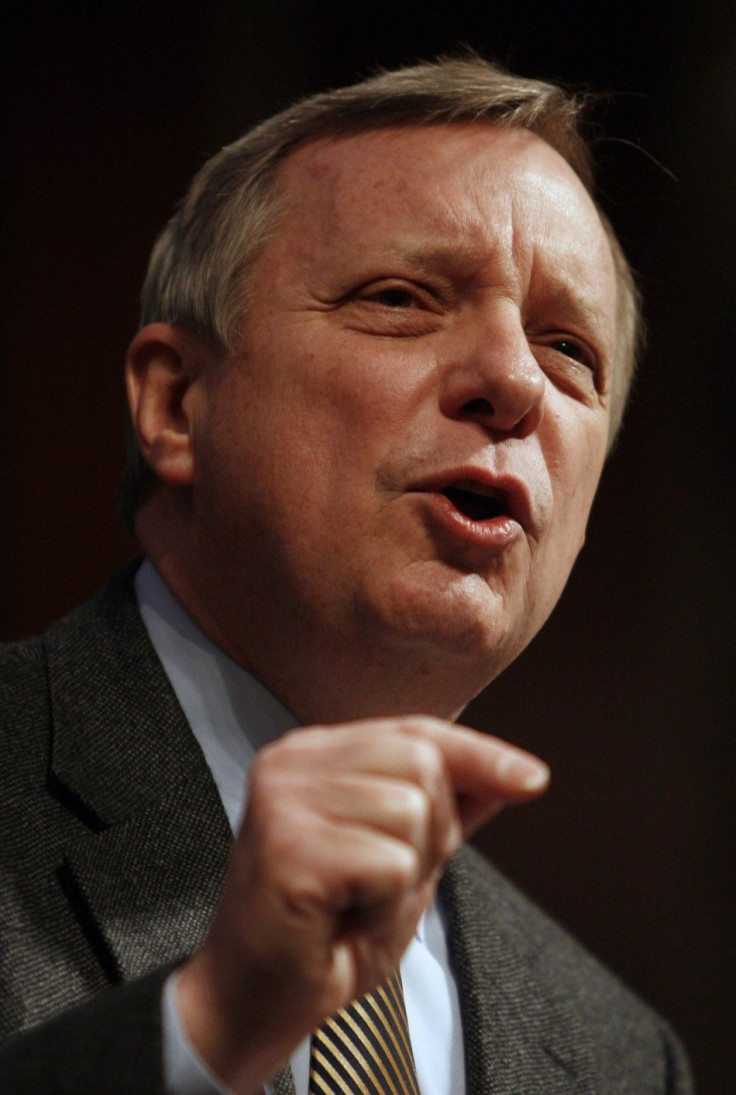Debit Card Fee Limit: Senate Rebuffs Financial Industry

Forty-Four cents may seem like small change for an industry that counts its executive salaries in the millions and its annual profits in the billions. But Tuesday's Senate vote to reduce the fees banks levy on individual debit card transactions represents a significant defeat for the financial industry and its formidable lobbying machine.
The vote was the culmination of a furious effort by banks and credit unions to suspend a component of the Dodd-Frank financial overhaul legislation. Last May, the Senate voted 64-33 in favor of an amendment instructing the Federal Reserve to cap debit card fees; the Fed obliged by lowering the rate from an average of 44 cents per swipe to 12 cents. Nearly a year later, a measure to delay that reduction fell six votes short of the 60 votes needed to pass.
I think it's hard to not think of this as a failure for the banks, said Mike Konczal, a research fellow at the Roosevelt Institute. It's something they've put a lot of money, energy and effort into.
The amendment pitted banks and credit unions against retailers, with both sides deploying lobbyists, contributions and advertisements to bolster their chances - according to the Sunshine Foundation, the two sides together hired more than 200 lobbyists. All parties tried to couch their arguments in consequences for the consumer: retailers charged that high debit fees forced them to raise prices, while banks suggested that losing the billions of dollars they reap annually from fees would force them to charge more money for services.
Sen. Jon Tester (D-MT), who sponsored the amendment along with Sen. Bob Corker (R-TN), argued that large financial institutions would be largely shielded from a loss in revenues and that smaller institutions would suffer. But given the clout of the industries sparring over the measure - Wal-Mart versus the Bank of America, as one advocate put it - this argument downplayed the fact that the big institutions were the ones driving the debate, observers said.
There was an effort to paint this as a David versus Goliath battle on both sides, said Bill Allison, Editorial Director for the Sunlight Foundation. I don't think in Washington there's ever such a thing as a David and Goliath battle when you have huge organizations that can marshal armies of lobbyists and have big coalitions on their sides.
Allison added that consumers were likely all along to see a price increase no matter the amendment's fate.
What you're seeing is a battle between two interest groups and it's not really clear how consumers benefit, he said. One way or another they'll pay.
Still, the vote was a clear setback for the financial industry - Sen. Dick Durbin (D-IL), who sponsored the original amendment to limit fees, called efforts to undo the cap a banker's compromise for a banker's benefit. It amounted to a rebuke of an early attempt by the financial industry to chip away at regulations imposed by the Dodd-Frank law.
This was a real coin toss that would have really functionally rolled back a part of Dodd-Frank, said Konczal. In terms of getting 60 votes in the Senate to really change a big part of Dodd-Frank [a debit] interchange cap was the most likely. There are a lot that could get 50 or 55 votes but I can't see 60.
The campaign around debit fees could also presage future efforts to trim parts of the law. A move to amend measures regulating derivatives would be unlikely to spur the type of concerted opposition mustered by large retailers, Konczal said, though he said their capacity to change that provision would be limited. Lobbyists representing more than 350 businesses, from McDonald's to JP Morgan, have focused their efforts on diluting the authority of the nascent Consumer Financial Protection Bureau.
On the one hand, [the financial industry] didn't carry the day, said Michael Beckel, a spokesman for Center for Responsive Politics. But on the other hand they did make a very strong lobbying effort and were able to win over many new votes compared to when the legislation originally passed last year, so I think the people on that side of the issue will take heart that they're going to be able to have momentum for themselves.
But as with the debit fee limit, the onus would be on the financial industry to change an existing law. That, Allison said, could be an uphill battle.
It's much easier to stop something in Washington than to make something go through, Allison said. In the sense that the bank industry has to play offense like this that's a huge disadvantage to have and it's going to take a lot for them to overcome it - the tendency is more towards inertia than change, especially in a divided capitol.
© Copyright IBTimes 2024. All rights reserved.





















